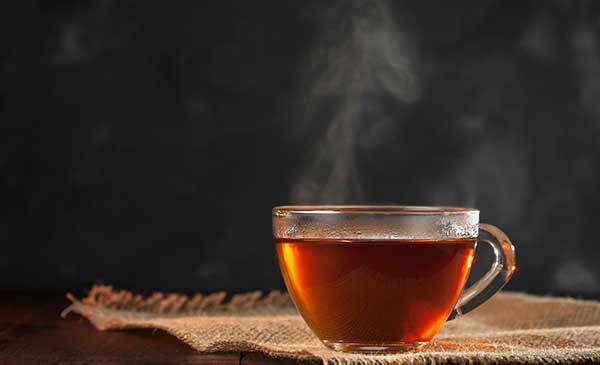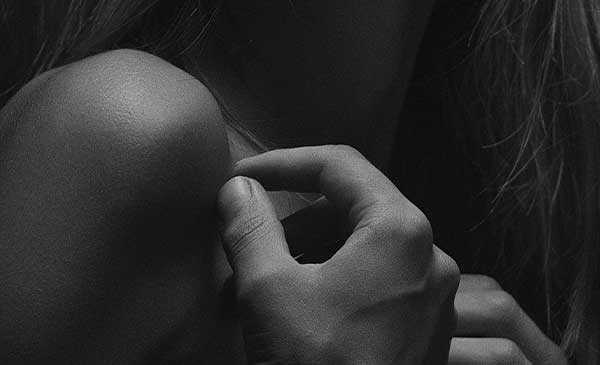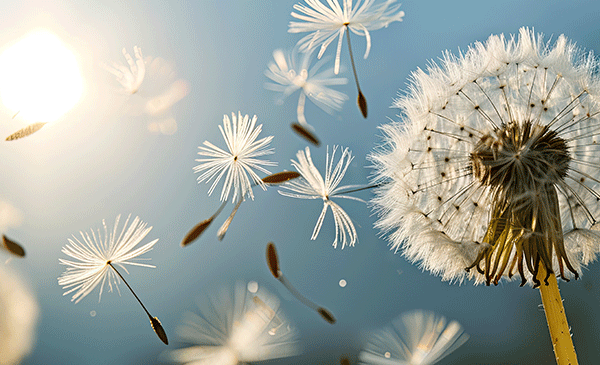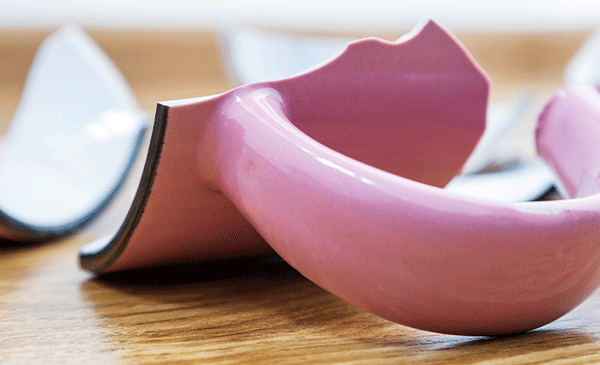A Guide to the Best Black Tea

As one of the most popular teas in the world, how do you know which is the best black tea for you? If you're new to black tea, this is a great place to start is to learn more about the types of black tea: the origin, flavor profiles, and of course, the health benefits.
Black Tea Basics
Black tea is one of the true teas along with green tea, oolong, and white tea as they all come from the Camellia sinensis plant. All tea leaves from the Camellia sinensis tea plant contain caffeine, and black tea has the highest content.
Black tea originated in China in the 17th century but is now grown and processed all over the world. The three largest producers are India, Sri Lanka, and Africa. Half of the world's production of black tea actually comes from India now instead of China. The varying geography and climate of these locations produce diverse varieties, cultivars, and flavor profiles of black tea.
Chinese teas are more slowly withered and oxidized which results in softer, fragrant, less astringent teas than the other tea-producing countries.

How is Black Tea Made?
Even though green, oolong, white, and black tea come from the same plant, the difference between the resulting flavor is how black tea is processed. Black tea is highly oxidized which turns the leaves dark brown-black.
All teas are either harvested by hand or machine. The leaves are then sorted by grade, separating out the best quality for loose leaf tea. (Tea bags get the leftovers if you get where I'm heading.)
The leaves are allowed to wither for 10 to 14 hours. Traditionally this step occurred outdoors in natural sunlight, but today's tea makers wilt the leaves indoors where they can carefully control air temperature, humidity, and circulation. Controlling the amount of moisture is essential to the final flavor of the tea.
After the leaves wilt, they are massaged to break the cell wall of the leaf by rolling the leaves for 5 - 60 minutes. While this was done by hand years ago, today it is most often performed by a machine. This process allows the leaves to release enzymes and essential oils. Once these compounds are exposed to air, a chemical reaction produces the flavors of the tea.
The next step is to begin the oxidation process. Oxidation is what creates the color and flavor of the tea. After the rolling, the leaves are spread out to rest for up to eight hours. The oxidation process changes the leaves from pale green to a golden brown color.
The oxidation transformation continues until they begin the drying process. At this point the leaves are placed under heat for 20-35 minutes which halts the oxidation, locking in the desired characteristics of the tea.

How Much Caffeine is in Black Tea?
Black tea is the most caffeinated of the true teas. An average cup of black tea contains about 47 mg per 8-ounce cup, compared to 95 mg of caffeine in an average cup of coffee.
As an oxidized tea, caffeine is more easily extracted from black tea than from other types of tea. The caffeine content in black tea can vary depending on water temperature, brewing time, or leaves-to-water ratio. The hotter the water, the longer the brewing time, and the higher the ratio of tea leaves to water will increase the caffeine content in your cup.
If you are looking for a low-calorie, no-sugar beverage or switching over from coffee then drinking black tea is the perfect option for you. The effect of caffeine will also be gentler than that of a cup of coffee or energy drink.
What are the Benefits of Black Tea?
Black tea has a high level of antioxidants which have been studied to provide the benefits of:
Studies have shown that with its high antioxidant content, drinking black tea may provide several health benefits:
- Lowering "bad" LDL cholesterol
- Improve gut health
- Decrease blood pressure
- Boosting heart health
- Reducing the risk of stroke
- Lowering blood sugar
- Reducing the risk of cancer
- Helping improve focus
- Helping protect against the risk of Type2 diabetes
Here is another article to find out if black tea is good for you.

What Does Black Tea Taste Like?
The flavor of black tea varies depending on the growing conditions and the processing technique of the tea master. And we haven't even started to talk about black tea blends.
Black tea takes on a malty flavor through the oxidation process. The flavor of black tea is stronger than the other true teas with more tannins, but that doesn't mean that black tea can't have sweet notes as well. High-quality black teas express a rich, complex flavor that goes well with a drop of milk. This can be very desirable for those switching from coffee.
To fully appreciate the flavor of black tea, the brewing process is important. While some tea will turn bitter at higher temperatures like green tea, black tea is best steeped at 195-200F.
Allow the tea to steep for three to five minutes. If you desire an even bolder flavor and kick of caffeine, black tea can be steeped for a longer period. Adding to the steep times will result in a darker color without added bitterness.
Black tea is also popular as iced tea. Quality loose-leaf black tea leaves provide a good shelf life, retaining their distinct flavor for several years. The flavor of black tea can be stronger and more astringent than other teas, but when brewed correctly black tea should be smooth and flavorful.
Lapsang souchong is a special type of black tea that comes from China. The leaves are smoke-dried over a pinewood fire giving the tea a smoky flavor profile.
Darjeeling tea from India is known for its fruity aroma and citrus floral notes which steeps to a golden or bronze color.
10 Best Black Tea Blends
From medium- to full-bodied, here are ten recommended loose leaf black tea blends display flavor profiles from savory to sweet. Here are our ten top picks for the best black teas:
English Breakfast tea is a full-bodied black loose leaf tea blend made with Keemun black tea, prized for its rich flavor with a slightly smoky palate.
Irish Breakfast is made with a blend of Ceylon and Assam black tea which gives it a more intensely robust flavor than English Breakfast tea with a spicy and jammy aroma, malty flavor, brisk mouthfeel, and nice sweetness in the finish.
One of the most popular black teas, Earl Grey Creme has warm flavors of vanilla and creme, softening the edge of the orange citrus notes of bergamot oils. Lavender Earl Grey is a twist on the classic Earl Grey with the sweet, floral fragrance of lavender creating a soothing, relaxing cup of tea.
Lavender Earl Grey is a blend of the classic Earl Grey tea adding in the sweet, floral fragrance of lavender creating a soothing, relaxing cup of tea.
Golden Monkey tea (also known as Jin Hou tea) is a full-bodied black tea grown in the Fujian province of China. Golden Monkey tea is considered to be one of the finest black teas. With the hairy golden tips and the shape of the leaves, it was rightly named for its resemblance to monkey claws.
The first sip of Golden Monkey tea starts with a malty aroma and flavor profile with a light honey sweetness. As you allow the tea to cool, the flavor opens up with the taste of roasted apples, walnut, cocoa, and spice notes giving it a sweet and savory aroma with a rich, coating texture and a smooth, delicate mouthfeel with a hint of smoke.
Ginger Peach offers the soft warmth of ginger blended with sweet flavors of ripe peach and apricot with a fine Ceylon black tea. Delicious as a hot ginger tea, or refreshing iced as well.
Cinnamon Spice is a perfect combination of cinnamon with a bright, full Ceylon black tea. Savor the richly aromatic flavor of cinnamon and the spicy, crisp finish of orange and cloves.
Raspberry Black tea is a gourmet black Ceylon tea blended with sweetly tart and jammy raspberries creating a cup of tea with a rounded texture, balanced astringency, and a sweet, slightly dry finish.
Vanilla tea is a bright Ceylon black tea blended with the sweet aroma of fresh vanilla beans. This flavored black tea steeps to a beautiful amber color with a full-bodied flavor that mellows with each sip.
Chocolate Chai is a chocolate lover's dream come true. Chocolate-flavored Ceylon black tea is blended with the warm, spiced flavors of cardamom, ginger, cloves, and cinnamon. It's like dessert with a kick.
Black tea is often used as the base in chai tea as well, such as Masala Chai and Thai Chai.
SOURCES
https://www.healthline.com/nutrition/black-tea-benefits






